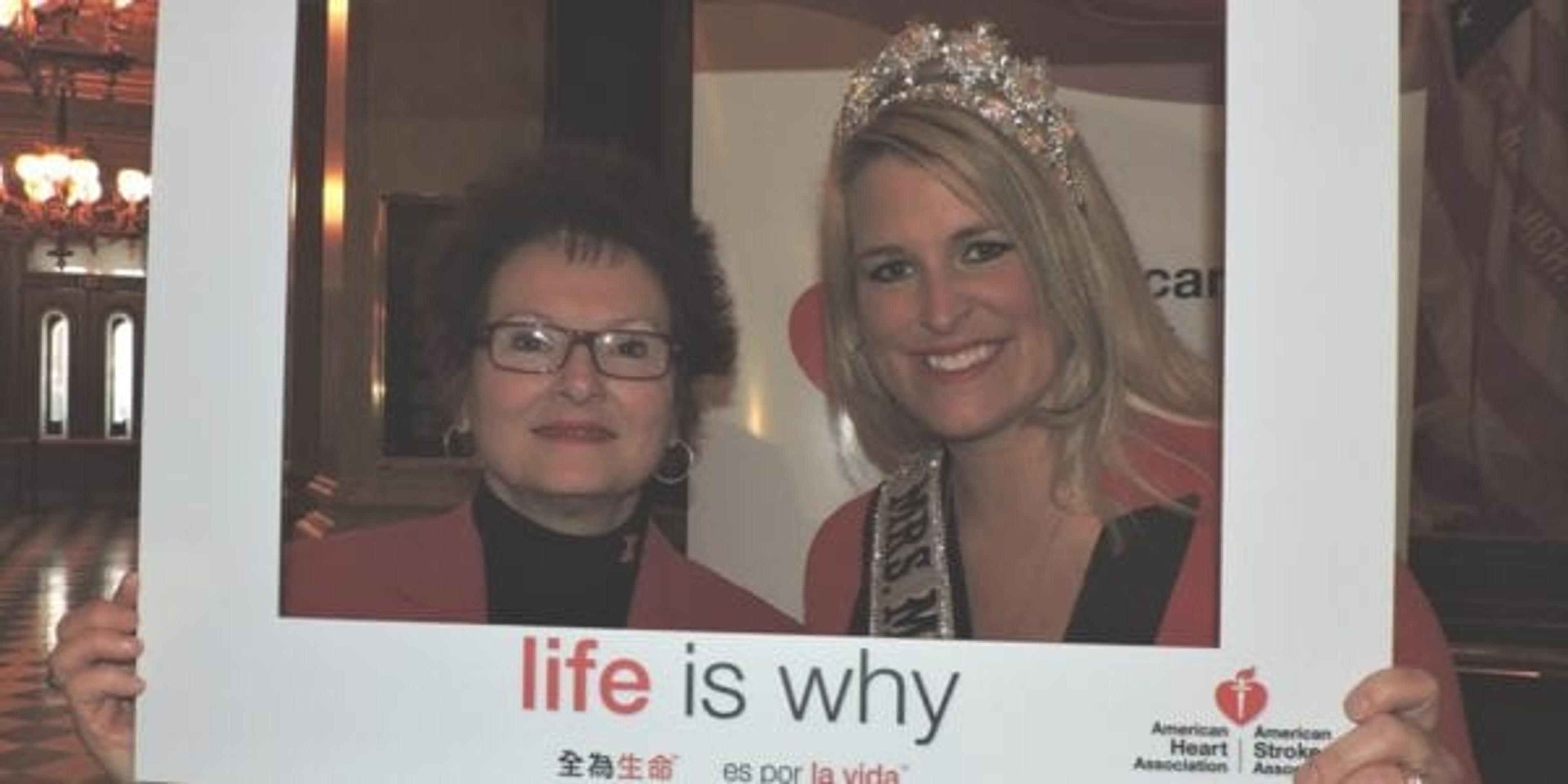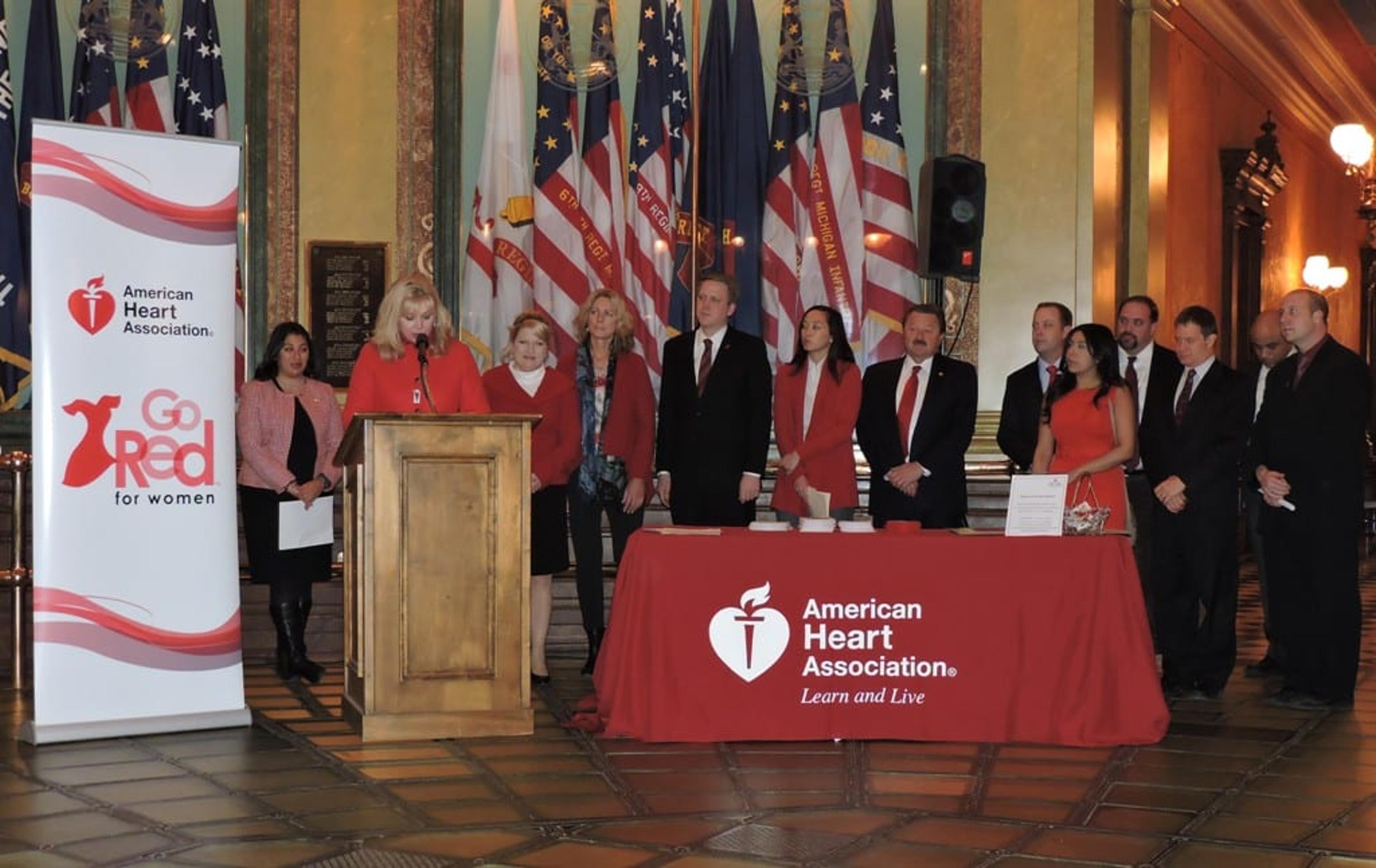From the Heart: Michigan Women Share Personal Heart Health Stories at Go Red Rally

Julie Bitely
| 4 min read

Janine Krolikowski worked as a cardiac ultrasound technician for 18 years.
Despite her intimate knowledge of the heart, on the day of her heart attack, she initially thought she was having an issue with her gallbladder. She then started to suspect a cardiac episode and took an aspirin.
“Do you think I called 911?,” she asked.
She didn’t, instead taking time to shower and shave before heading to the doctor.
Krolikowski said she ignored atypical symptoms such as muscle spasms between her shoulder blades. She also said her story isn’t unusual and that women tend to put themselves last, putting off medical attention to tend to their families, co-workers, and others first. She urged women to not follow her lead and seek medical attention right away if they fear they’re experiencing a cardiac episode.
“If we are not here, we will not be good to our children, our families, and those we love,” she said. “We have to put ourselves number one.”
The national Go Red For Women representative from Royal Oak addressed lawmakers and others in attendance at a Lansing kickoff for American Heart Month in Michigan last week. Lawmakers announced an American Heart Month and Go Red For Women resolution on Thursday, Jan. 29 at the Capitol building. The resolution urges Michiganders to take their health to heart this February.
Michigan lawmakers presenting at the kickoff included Senator Tonya Schuitmaker, Senator Rebekah Warren, Representative Stephanie Chang, and Representative Daniela Garcia. An estimated eight million women in the U.S. are living with heart disease, yet only one in six women believe that heart disease is her greatest health threat. In fact, 90 percent of women have one or more risk factors for developing heart disease, according to the American Heart Association.

Senator Tonya Schuitmaker addresses attendees at a recent American Heart Association Go Red For Women rally at the Capitol in Lansing.
Warren said educational efforts such as the Go Red campaign are making a difference, but that losing one out of every three women to heart disease is “still way too many.” That’s one women every minute.
“It’s making a difference, but we have a long way to go,” said Warren.
Chang encouraged Michigan women to quit smoking, decrease their sodium consumption, and increase the amounts of healthy foods they eat and exercise they get, as heart healthy measures to take. She also urged women to get an annual checkup to gauge their heart and overall health.
Kendra Nichols, Mrs. Michigan Galaxy 2014, lost her father to a heart attack at 38. Her mom also suffers from heart disease and has endured mini strokes. Her sister had to have heart surgery.
So it wasn’t a surprise to Nichols to discover a rapid heartbeat diagnosis when she went in for a routine doctor’s appointment to address back pain. She’ll have to take medicine every day for the rest of her life to control her condition. Still, she said if women notice unusual symptoms, they need to seek medical attention right away, even if they’re not sure it’s related to their heart, as she did.
“It really is so much about the prevention piece,” she said.
When her family went through her father’s personal belongings after his death, they discovered many of his pockets contained antacids, indicating that he’d been suffering from discomfort that he likely chalked up to gastrointestinal distress.
“He obviously had signs, but just didn’t do anything about it,” she said.
The Owosso woman hopes events like the Go Red rally at the Capitol in Lansing shine a spotlight on the issue of heart health and help more women become aware of symptoms to watch out for. Watch the American Heart Association’s “Just a Little Heart Attack” video for a humorous take on a serious topic and visit the Go Red For Women website to get a ton of great tips, recipes, and heart healthy action steps you can take to Go Red this February.
Learn about events near you to get in the Go Red spirit.
Find out how the Blues are going Red for heart health this year.
Photo credit: Julie Bitely





